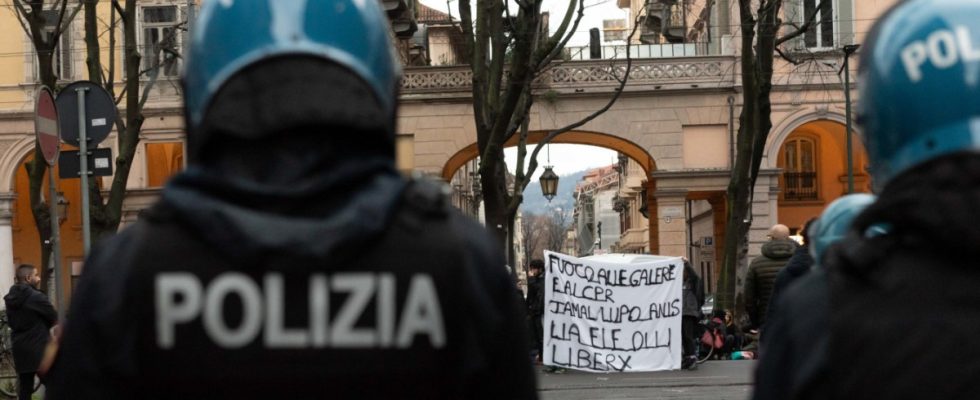Politicians and the public in Italy are increasingly alarmed by the growing violence at rallies on the country’s streets. The debate began with unauthorized pro-Palestinian demonstrations in Pisa and Florence. The events in the university town of Pisa particularly made headlines. According to eyewitness reports and video images, the police used batons to crack down on demonstrators, many of whom were underage, and around a dozen of them were injured and some had to be treated in hospital. The police’s actions were widely criticized; even the right-wing mayor of Pisa was affected; the police promised clarification.
The President reminds us that authority cannot be enforced with batons
The Catholic Church also condemned police violence against young people demonstrating. Violence is never justified, said a statement from the Pastoral Council of the Archdiocese of Pisa. All relevant authorities must ensure a peaceful democratic confrontation and protect the safety of young people.
President Sergio Mattarella in particular caused a stir. He spoke unusually clearly of a “sign of failure” on the part of the state. The police must remember that “authority” is not enforced with batons, warned the head of state. Their job is to protect public order and freedom of expression. Prime Minister Giorgia Meloni initially remained silent, but her deputy Matteo Salvini immediately sided with the police unconditionally: They deserved all protection and support.
Since then, protests and demonstrations in the country against police violence and the right-wing government have been growing; the left-wing and liberal opposition has become alarmed and is calling for the resignation of the Interior Minister Matteo Piantedosi, who is responsible for the police. Meloni’s Fratelli d’Italia party, in turn, accused the left in a statement of supporting violence and thus being partly responsible for the riots.
Police officers have to seek protection during riots in Turin
On Wednesday there was a different clash between demonstrators and the police in Turin. According to media reports, around 50 people apparently from the autonomous scene tried to free a man from Morocco who is said to have daubed the walls of a subway with slogans. Some participants attacked the police car in which the man was being transported to a repatriation center, and the police then retreated with him to a police station. There were also riots there, cars were said to have been damaged, and the police also reported that a police officer was injured.
Mattarella intervened again, calling the police chief and later the interior minister to find out about the incident. This time the president expressed his solidarity with the officers of the patrol attacked in Turin. The non-party Interior Minister Piantedosi spoke of a “climate of spite and mistrust that the law enforcement officers and the police are exposed to these days.”
The opposition is demanding his resignation, he is defending the police: Interior Minister Matteo Piantedosi on Thursday in the Chamber of Deputies in Rome.
(Photo: Roberto Monaldo/La Presse/AP)
In the evening, the head of government herself spoke on television for the first time. She made specific reference to the events in Turin and warned of the risks that could arise from a loss of trust in those who ensure security. “This is a dangerous game,” Meloni said. Her words were seen as criticism of the president, whom she did not mention by name. On Thursday the issue reached the Italian parliament, where there was a heated exchange between the political camps.
Artists call for Israel to be excluded from the Venice Art Biennale
The background to many demonstrations is the Middle East conflict. Young people, left-wing groups and trade unions in particular are protesting against the Israeli actions in the Gaza Strip. The discussion is also taking place in the cultural scene. A movement is currently forming against Israel’s participation in the Biennale, the international art exhibition in Venice starting April 20th. An “Art Not Genocide Alliance” says it has so far collected around 15,000 online signatures from cultural workers from all over the world in order to prevent the planned Israeli pavilion.
Culture Minister Gennaro Sangiuliano dismissed the demand as “unacceptable and shameful.” The Biennale is a place of freedom, encounters and dialogue and not “of censorship and intolerance”. At the Sanremo Schlager Festival a month ago there was already a scandal surrounding the appearance of the well-known rapper Ghali, who had called for an “end to the genocide” in the Gaza Strip; This was sharply criticized by those responsible for the public broadcaster Rai.

